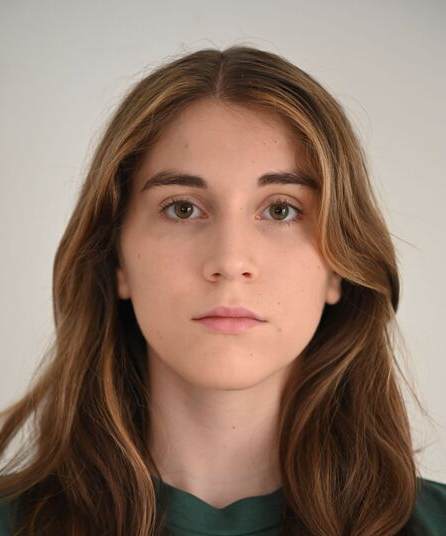Henderik Proper
Univ.Prof. PhD
Henderik Proper
- Email: henderik.proper@tuwien.ac.at
- Phone: +43-1-58801-194303
- Office: HC0215 (1040 Wien, Favoritenstrasse 9)
- About:
- Orcid: 0000-0002-7318-2496
- Keywords:
- Roles: Head of Research Unit, Full Professor
Publications
Keywords: AI, Enterprise Architecture, Enterprise Modelling
Astract: A future enterprise will be a complex ecosystem (or system of systems) that operates in a dynamic uncertain environment. It will need to continue delivering the stated goals while dealing with unforeseen changes along multiple dimensions such as events opening up new opportunities or constraining the existing ones, competitor actions, regulatory regime, law of the land and technology advance/obsolescence. Customers increasingly demand highly personalized services and user experiences that can change depending on market trends. The goals that drive the operation of an enterprise can change over time. Businesses are increasingly regulated. Given the increased dynamics, existing regulations will keep changing frequently, and new regulations will get introduced at a faster rate. Responsive compliance management with minimal exposure to risk will therefore be a universal key requirement that will be felt increasingly acutely across business domains. Increasingly, enterprises are pledging to the sustainable development goals proposed by the UN. Quite a few domains are witnessing stiff competition from new entrants such as FinTech companies in banking. Enterprises need to significantly reduce the costs to continue to be viable in the face of this technology-centric agile competition. Moreover, as the Covid-19 pandemic has revealed, enterprises need to be prepared to quickly adapt in the face of black swan events.
Kulkarni, V., Reddy, S., Clark, T., & Proper, H. (2023). The AI-Enabled Enterprise. Springer. https://doi.org/10.1007/978-3-031-29053-4
Keywords: Enterprise Modelling
Astract: In the Western world, digital has become the new normal, both in our daily lives and at our work. Additionally, Western countries have seen a transition from a goods-oriented economy to a services-oriented economy. Whereas, in the recent past, it was already the case that change was the only constant, these intertwined, and mutually amplifying, trends even further increase the pace of change. As a result, enterprises are confronted with a need to transform (continuously) accordingly.
During any enterprise transformation, coordination among the key stakeholders and the projects that drive the transformations is essential. A shared understanding, agreement, and commitment are needed on (1) what the overall mission/vision of the enterprise is, (2) the current affairs of the enterprise and any ongoing changes, (3) the current affairs of the context of the enterprise, and (4) what (given the latter) the ideal future affairs of the enterprise are.
Models, and ultimately enterprise (architecture) modeling languages and framework, are generally considered as an effective way to support such (informed) coordination. In the past, different frameworks and languages have been developed to this end, including the ArchiMate language. The latter has evolved to become a widely accepted industry standard.
The objective of this chapter is threefold: (1) we intend to illustrate some of the key challenges which the digital transformation, and the two intertwined trends that drive it, puts on enterprise (architecture) modeling languages, (2) assess to what extent ArchiMate meets these challenges, and (3) draft the outline of a next-generation enterprise (architecture) modeling language (framework) that may be more suited to meet the challenges of these trends.
Gils, B. van, & Proper, H. A. (2023). Next-Generation Enterprise Modeling. In H. Proper, B. van Gils, & K. Haki (Eds.), Digital Enterprises : Service-Focused, Digitally-Powered, Data-Fueled (pp. 279–305). Springer. https://doi.org/10.1007/978-3-031-30214-5_21
EA ModelSet – A FAIR Dataset for Machine Learning in Enterprise Modeling
 Philipp-Lorenz Glaser
Philipp-Lorenz Glaser Emanuel Sallinger
Emanuel Sallinger Joao Paulo A. Almeida
Joao Paulo A. Almeida Monika Kaczmarek-Heß
Monika Kaczmarek-Heß Agnes Koschmider
Agnes KoschmiderKeywords: Data set, Enterprise architecture, Enterprise modeling, FAIR, Machine learning
Astract: The conceptual modeling community and its subdivisions of enterprise modeling are increasingly investigating the potentials of applying artificial intelligence, in particular machine learning (ML), to tasks like model creation, model analysis, and model processing. A prerequisite—and currently a limiting factor for the community—to conduct research involving ML is the scarcity of openly available models of adequate quality and quantity. With the paper at hand, we aim to tackle this limitation by introducing an EA ModelSet, i.e., a curated and FAIR repository of enterprise architecture models that can be used by the community. We report on our efforts in building this data set and elaborate on the possibilities of conducting ML-based modeling research with it. We hope this paper sparks a community effort toward the development of a FAIR, large model set that enables ML research with conceptual models.
Glaser, P.-L., Sallinger, E., & Bork, D. (2023). EA ModelSet – A FAIR Dataset for Machine Learning in Enterprise Modeling. In J. P. A. Almeida, M. Kaczmarek-Heß, A. Koschmider, & H. Proper (Eds.), The Practice of Enterprise Modeling : 16th IFIP Working Conference, PoEM 2023, Vienna, Austria, November 28 – December 1, 2023, Proceedings (pp. 19–36). Springer. https://doi.org/10.1007/978-3-031-48583-1_2
A Vision for Flexible GLSP-Based Web Modeling Tools
 Philip Langer
Philip Langer Tobias Ortmayr
Tobias Ortmayr Joao Paulo A. Almeida
Joao Paulo A. Almeida Monika Kaczmarek-Heß
Monika Kaczmarek-Heß Agnes Koschmider
Agnes KoschmiderKeywords: Deployment, Flexibility, GLSP, Language Server Protocol, LSP, Modeling tool, Tool development, Web modeling
Astract: In the past decade, the modeling community has produced many feature-rich modeling editors and tool prototypes not only for modeling standards but particularly also for many domain-specific languages. More recently, however, web-based modeling tools have started to become increasingly popular in the industry for visualizing and editing models adhering to such languages. This new generation of modeling tools is built with web technologies and offers much more flexibility when it comes to their user experience, accessibility, reuse, and deployment options. One of the technologies behind this new generation of tools is the Graphical Language Server Platform (GLSP), an open-source client-server framework hosted under the Eclipse foundation, which allows tool developers to build modern diagram editors for modeling tools that run in the browser or can be easily integrated into IDEs such as Eclipse, VS Code, or Theia. In this paper, we describe our vision for more flexible modeling tools which is based on our experiences from developing several traditional and web-based modeling tools in an industrial and academic context. With that, we aim at sparking a new line of research and innovation in the modeling community for modeling tool development practices and to explore opportunities, advantages, and limitations of web-based modeling tools, as well as bridge the gap between scientific tool prototypes and industrial tools being used in practice.
Bork, D., Langer, P., & Ortmayr, T. (2023). A Vision for Flexible GLSP-Based Web Modeling Tools. In J. P. A. Almeida, M. Kaczmarek-Heß, A. Koschmider, & H. Proper (Eds.), The Practice of Enterprise Modeling : 16th IFIP Working Conference, PoEM 2023, Vienna, Austria, November 28 – December 1, 2023, Proceedings (pp. 109–124). Springer. https://doi.org/10.1007/978-3-031-48583-1_7
A Generic and Customizable Genetic Algorithms-Based Conceptual Model Modularization Framework
 Jan Michael Laranjo
Jan Michael Laranjo Luise Pufahl
Luise Pufahl Dimka Karastoyanova
Dimka Karastoyanova Marten van Sinderen
Marten van Sinderen Joao Moreira
Joao MoreiraKeywords: Generic Framework, Genetic Algorithm, Modularization
Astract: Conceptual models need to be comprehensible and maintainable by humans to exploit their full value in faithfully representing a subject domain. Modularization, i.e. breaking down the monolithic model into smaller, comprehensible chunks has proven very valuable to maintain this value even for very large models. The quality of modularization however often depends on application-specific requirements, the domain, and the modeling language. A well-defined generic modularizing framework applicable to different modeling languages and requirements is lacking. In this paper, we present a customizable and generic multi-objective conceptual models modularization framework. The multi-objective aspect supports addressing heterogeneous requirements while the framework’s genericity supports modularization for arbitrary modeling languages and its customizability is provided by adopting the modularization configuration up to the level of using user-defined heuristics. Our approach applies genetic algorithms to search for a set of optimal solutions. In this paper, we present the details of our Generic Genetic Modularization Framework with a case study to show i) the feasibility of our approach by modularizing models from multiple modeling languages, ii) the customizability by using different objectives for the modularization quality, and, finally, iii) a comparative performance evaluation of our approach on a dataset of ER and ECore models.
Ali, S. J., Laranjo, J. M., & Bork, D. (2023). A Generic and Customizable Genetic Algorithms-Based Conceptual Model Modularization Framework. In H. Proper, L. Pufahl, D. Karastoyanova, M. van Sinderen, & J. Moreira (Eds.), Enterprise Design, Operations, and Computing : 27th International Conference, EDOC 2023, Groningen, The Netherlands, October 30 – November 3, 2023, Proceedings (pp. 39–57). Springer. https://doi.org/10.1007/978-3-031-46587-1_3
Teaching
Project in Computer Science 1
Semester: 2025S; Nr: 194.145; Type: PR; Hours: 4.0; Language: if required in English; View on TISSProject in Computer Science 2
Semester: 2025S; Nr: 194.146; Type: PR; Hours: 4.0; Language: if required in English; View on TISSResearch Seminar
Semester: 2024W; Nr: 188.446; Type: SE; Hours: 2.0; Language: if required in English; View on TISSLiterature Seminar for PhD Students
Semester: 2024W; Nr: 188.512; Type: SE; Hours: 2.0; Language: German; View on TISSBachelor Thesis for Informatics and Business Informatics
Semester: 2024W; Nr: 188.926; Type: PR; Hours: 5.0; Language: if required in English; View on TISSInformation Systems Engineering
Semester: 2024W; Nr: 194.143; Type: VU; Hours: 4.0; Language: English; View on TISSProject in Computer Science 1
Semester: 2024W; Nr: 194.145; Type: PR; Hours: 4.0; Language: if required in English; View on TISSEnterprise & Process Engineering
Semester: 2024W; Nr: 194.152; Type: VU; Hours: 4.0; Language: English; View on TISSOntology-Driven Conceptual Modeling
Semester: 2024W; Nr: 199.021; Type: VU; Hours: 2.0; Language: English; View on TISSTeam
Business Informatics Group, TU Wien
Professors
Christian Huemer
Ao.Univ.Prof. Mag.rer.soc.oec.Dr.rer.soc.oec.
Dominik Bork
Associate Prof. Dipl.-Wirtsch.Inf.Univ.Dr.rer.pol.
Gerti Kappel
O.Univ.Prof.in Dipl.-Ing.inMag.a Dr.in techn.
Henderik Proper
Univ.Prof. PhDResearchers
Aleksandar Gavric
Univ.Ass. MEng. B.Eng.
Galina Paskaleva
Projektass.in Dipl.-Ing.inDipl.-Ing.in BSc

Marianne Schnellmann
Univ.Ass.in BSc MScMarion Murzek
Senior Lecturer Mag.a rer.soc.oec.Dr.in rer.soc.oec.
Marion Scholz
Senior Lecturer Dipl.-Ing.inMag.a rer.soc.oec.
Miki Zehetner
Univ.Ass. DI Bakk.rer.soc.oec. MScSyed Juned Ali
Univ.Ass. BSc MScStudent-Staff

Florian Fankhauser
Projektass. Dipl.-Ing.Julia Smejkal
BSc






